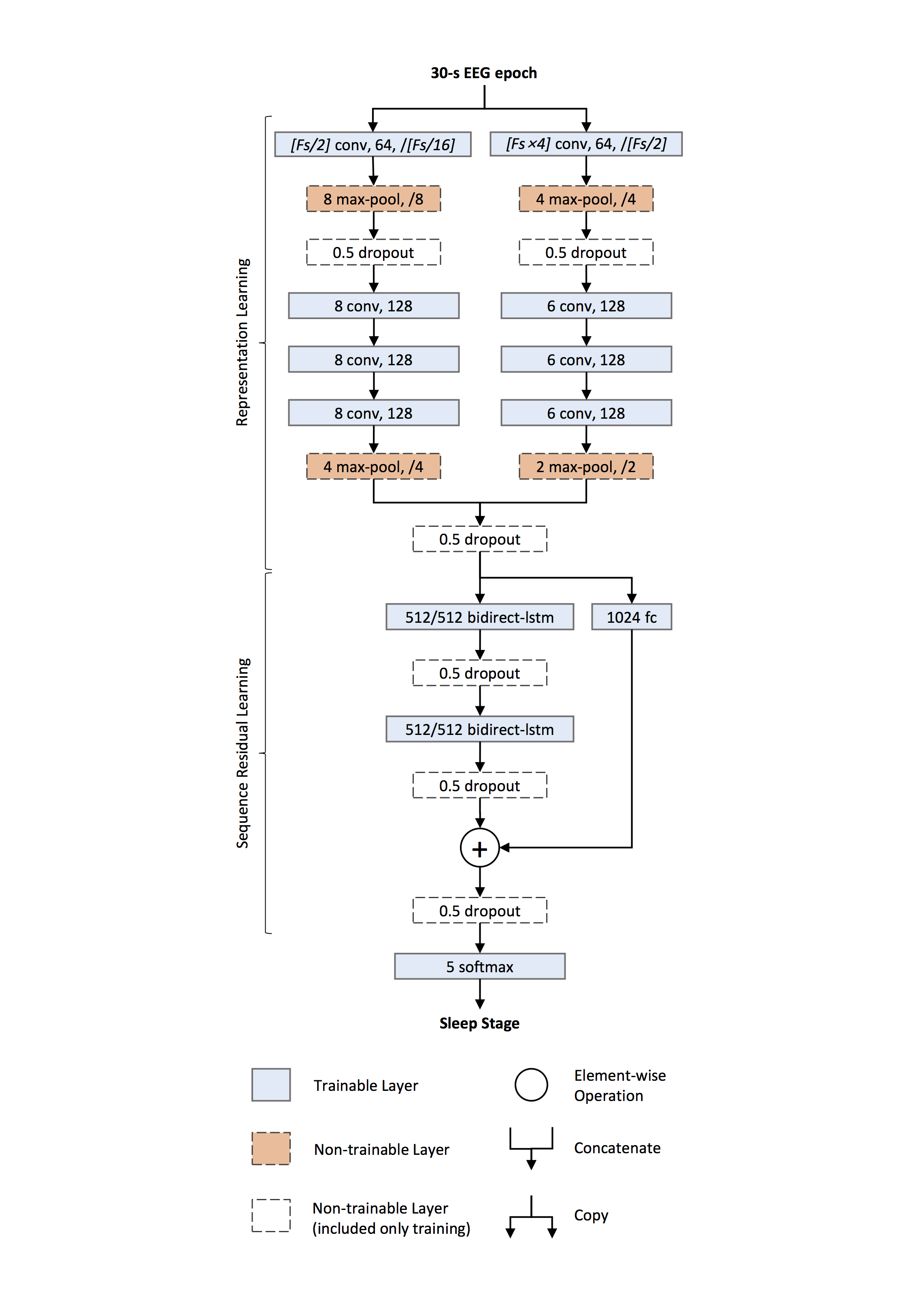DeepSleepNet: a Model for Automatic Sleep Stage Scoring based on Raw Single-Channel EEG
The present study proposes a deep learning model, named DeepSleepNet, for automatic sleep stage scoring based on raw single-channel EEG. Most of the existing methods rely on hand-engineered features which require prior knowledge of sleep analysis. Only a few of them encode the temporal information such as transition rules, which is important for identifying the next sleep stages, into the extracted features. In the proposed model, we utilize Convolutional Neural Networks to extract time-invariant features, and bidirectional-Long Short-Term Memory to learn transition rules among sleep stages automatically from EEG epochs. We implement a two-step training algorithm to train our model efficiently. We evaluated our model using different single-channel EEGs (F4-EOG(Left), Fpz-Cz and Pz-Oz) from two public sleep datasets, that have different properties (e.g., sampling rate) and scoring standards (AASM and R&K). The results showed that our model achieved similar overall accuracy and macro F1-score (MASS: 86.2%-81.7, Sleep-EDF: 82.0%-76.9) compared to the state-of-the-art methods (MASS: 85.9%-80.5, Sleep-EDF: 78.9%-73.7) on both datasets. This demonstrated that, without changing the model architecture and the training algorithm, our model could automatically learn features for sleep stage scoring from different raw single-channel EEGs from different datasets without utilizing any hand-engineered features.
PDF Abstract





 Montreal Archive of Sleep Studies
Montreal Archive of Sleep Studies
 MaSS
MaSS
